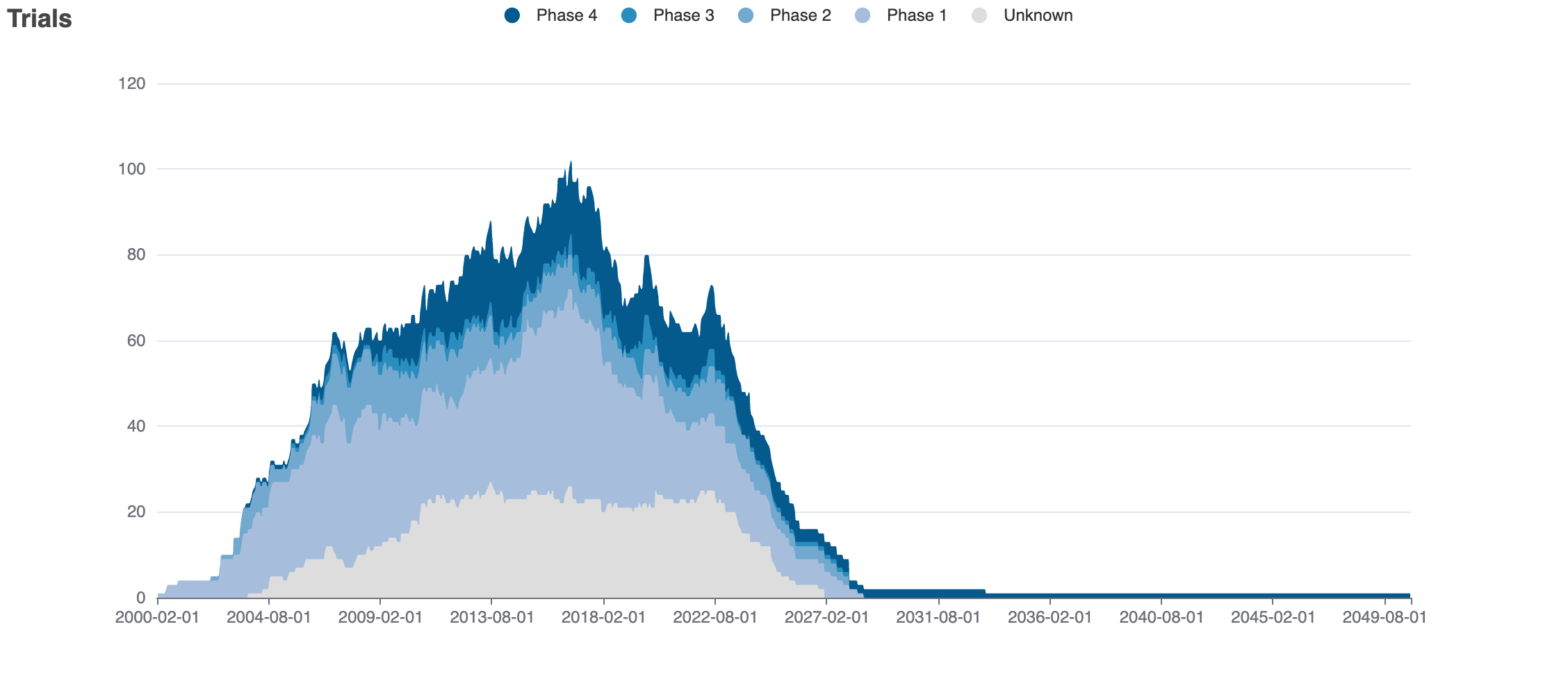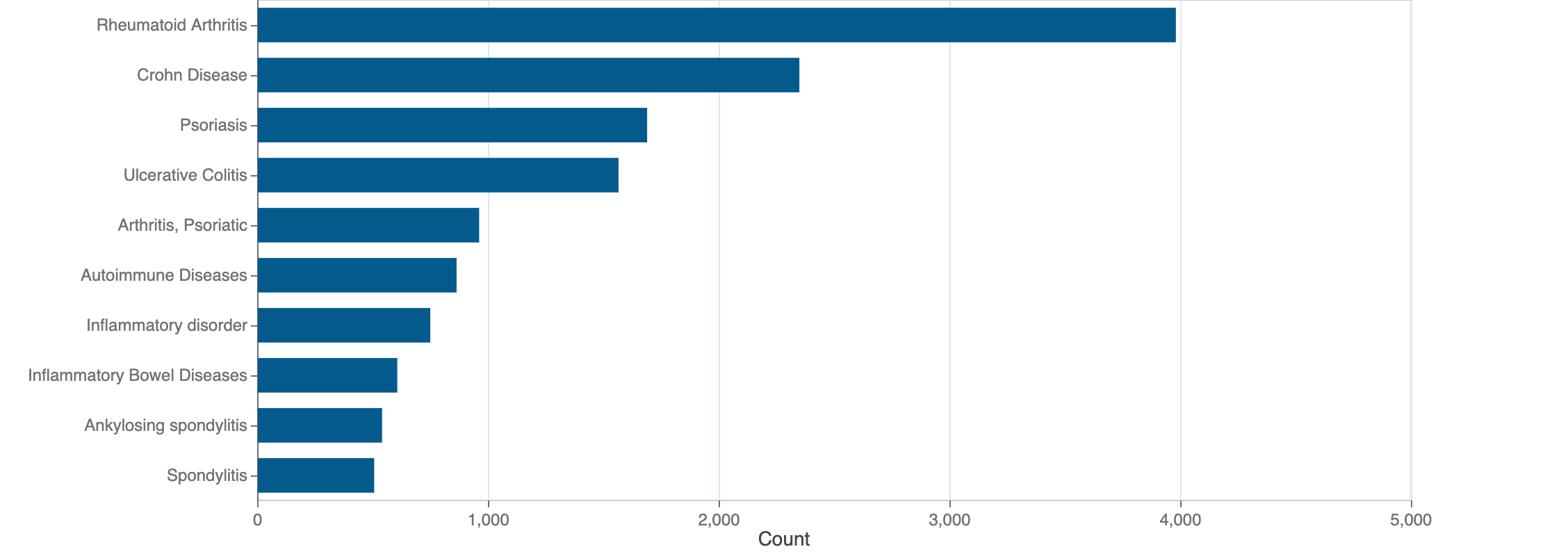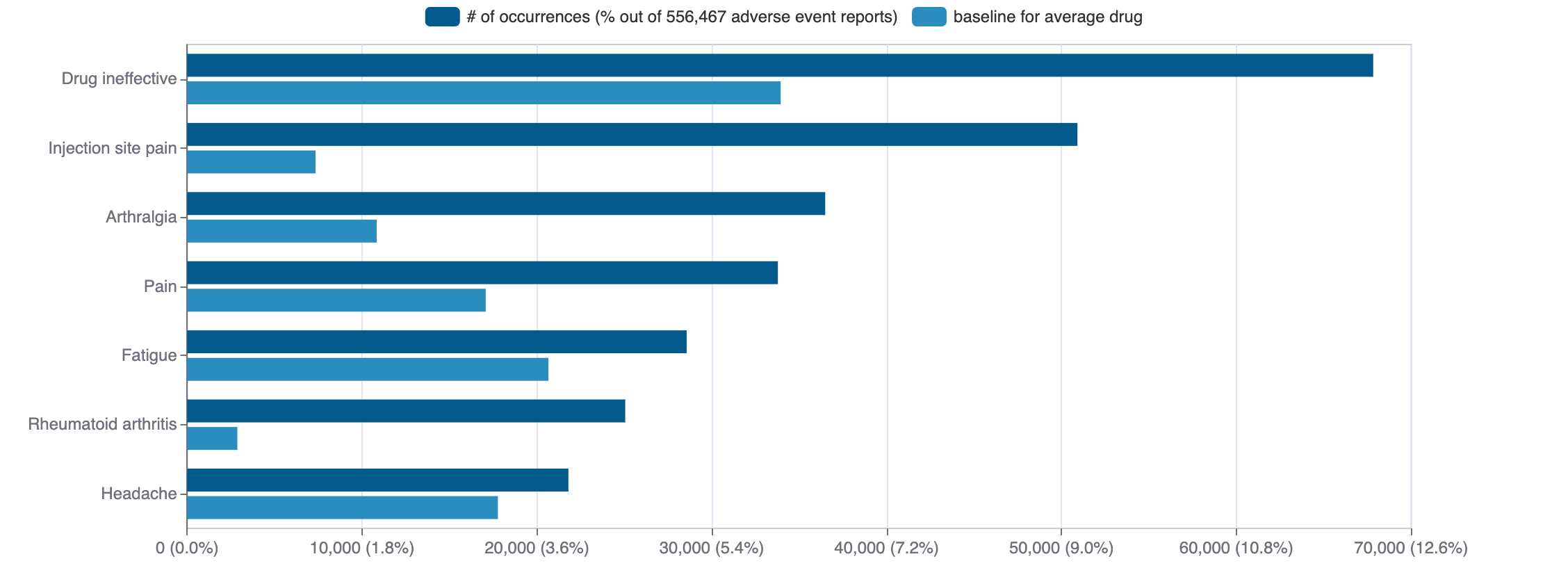PEGDINETANIB
Pegdinetanib is a protein pharmaceutical. It is currently being investigated in clinical studies. It is known to target vascular endothelial growth factor receptor 2.
Download report
Favorite
Events Timeline
Commercial
Clinical
Drug
Target
Variants
Financial
Trends
Safety
Events Timeline
5D
1M
3M
6M
YTD
1Y
2Y
5Y
Max
Events
FDA approval date
EMA approval date
Patent expiration date
Study first post date
Last update post date
Start date
Primary completion date
Completion date
Results first post date

Mock data
Subscribe for the real data
Subscribe for the real data
Commercial
No data
Clinical
Clinical Trials
6 clinical trials
View more details

Mock data
Subscribe for the real data
Subscribe for the real data
Indications Phases 4
No data
Indications Phases 3
No data
Indications Phases 2
Indication | MeSH | Ontology | ICD-10 | Ph 1 | Ph 2 | Ph 3 | Ph 4 | Other | Total |
|---|---|---|---|---|---|---|---|---|---|
| Colorectal neoplasms | D015179 | — | — | — | 1 | — | — | — | 1 |
| Non-small-cell lung carcinoma | D002289 | — | — | — | 1 | — | — | — | 1 |
Indications Without Phase
No data
Epidemiology
Epidemiological information for investigational and approved indications
View more details
Drug
General
| Drug common name | PEGDINETANIB |
| INN | pegdinetanib |
| Description | Pegdinetanib (USAN; planned trade name Angiocept) is an investigational anti-cancer drug that acts as a selective antagonist of vascular endothelial growth factor receptor 2 (VEGFR-2), hindering vascularization of tumors. It is a genetically engineered peptide derivative based on the monobody technology, and is being developed by Adnexus.
|
| Classification | Protein |
| Drug class | angiogenesis inhibitors; PEGylated compounds, covalent attachment of macrogol (polyethylene glycol) polymer |
| Image (chem structure or protein) |  |
| Structure (InChI/SMILES or Protein Sequence) | — |
Identifiers
| PDB | — |
| CAS-ID | — |
| RxCUI | — |
| ChEMBL ID | CHEMBL2108356 |
| ChEBI ID | — |
| PubChem CID | — |
| DrugBank | — |
| UNII ID | SSB56T0M0L (ChemIDplus, GSRS) |
Target
Agency Approved
No data
Alternate
KDR
KDR
Organism
Homo sapiens
Gene name
KDR
Gene synonyms
FLK1, VEGFR2
NCBI Gene ID
Protein name
vascular endothelial growth factor receptor 2
Protein synonyms
CD309, Fetal liver kinase 1, fetal liver kinase-1, FLK-1, KDR, Kinase insert domain receptor, kinase insert domain receptor (a type III receptor tyrosine kinase), Protein-tyrosine kinase receptor flk-1, soluble VEGFR2, tyrosine kinase growth factor receptor
Uniprot ID
Mouse ortholog
Kdr (16542)
vascular endothelial growth factor receptor 2 (Q8VCD0)
Variants
No data
Financial
No data
Trends
PubMed Central
Top Terms for Disease or Syndrome:

Mock data
Subscribe for the real data
Subscribe for the real data
Additional graphs summarizing 40 documents
View more details
Safety
Black-box Warning
No Black-box warning
Adverse Events
Top Adverse Reactions

Mock data
Subscribe for the real data
Subscribe for the real data
33 adverse events reported
View more details
© 2020-2025 Collaborative Drug Discovery Inc. (CDD) | Terms of Use